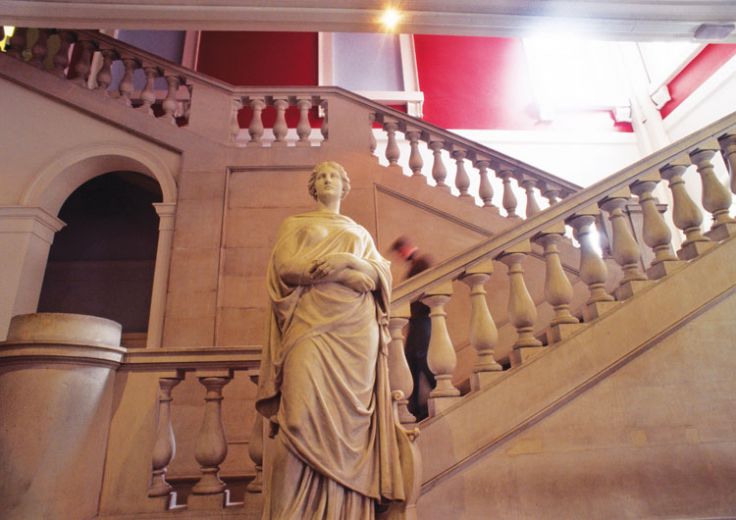How the arts can evolve to thrive in the modern world

Sponsored by
Responding to the rapidly transforming challenges of our time, King’s College London is expanding areas within its Faculty of Arts and Humanities
King’s College London is growing two of its innovative departments to offer students and researchers more exciting opportunities in the modern world. The university is expanding its department of digital humanities (DH) and the department of culture, media and creative industries (CMCI), and is recruiting for a range of roles.
Renowned nationally and globally, the interdisciplinary departments – two of 14 within the Faculty of Arts and Humanities – combine intellectual rigour with real-world outcomes. Professor Marion Thain, executive dean of the Faculty of Arts and Humanities at King’s College London, says one of the faculty’s key strengths is connecting arts and humanities expertise with 21st-century concerns.
“It’s a real ambition for the faculty to make sure all of our areas of study and research have that relevance and that really meaningful impact on the things that people care about today,” Professor Thain says. “The work we’re doing with DH and CMCI is really cementing that link between profound research expertise and global issues.”
Working together, the two departments boast an externally funded research portfolio that focuses on a wide range of topics, totalling some £10 million. They were ranked first in the UK for research power in their joint research excellence framework submission in 2014.
Based in the heart of London, both departments benefit from close ties with prestigious local institutions, including the British Museum and Shakespeare’s Globe theatre, as well as international cultural and not-for-profit organisations. For example, partnerships with Amnesty International and the Getty Foundation have informed DH’s approach to humanitarian policy and digital art history.
The expertise in the departments is also recognised by government and leveraged to inform policy. CMCI is a research partner on the All-Party Parliamentary Group for Creative Diversity’s “what works” project and DH is working to inform official responses to online hate speech, Covid-19 misinformation and fake news.
“It’s very topical work, very socially relevant work, and the government is coming to King’s for these kinds of perspectives,” says Professor Thain. “Those connections and the porousness between the university and the community, but also government policy strategy and major institutions, are really quite exciting for researchers and students alike. They know they’re working in a hub that is open to the things they care about.”
As part of the expansion, the faculty is offering additional courses, such as a new undergraduate programme in CMCI and an MSc in Digital Economy in DH, which examines a fast-growing area of study. Both programmes are experiencing high demand, and offer students and researchers a stimulating study environment with state-of-the-art facilities, including DH’s bespoke digital lab space.
For scholars interested in investigating issues both at home and globally, King’s encourages work on diverse projects with wide-reaching impact.
“When we look at the world today and the needs of the world today, it’s clear these two areas have a great deal to offer,” says Professor Thain. “These are areas that are crucial to our contribution to the community as a university. As relatively recently established disciplines, there’s still room for growth, so it’s an exciting time for both departments.”
Find out more about the Faculty of Arts and Humanities at King’s College London.